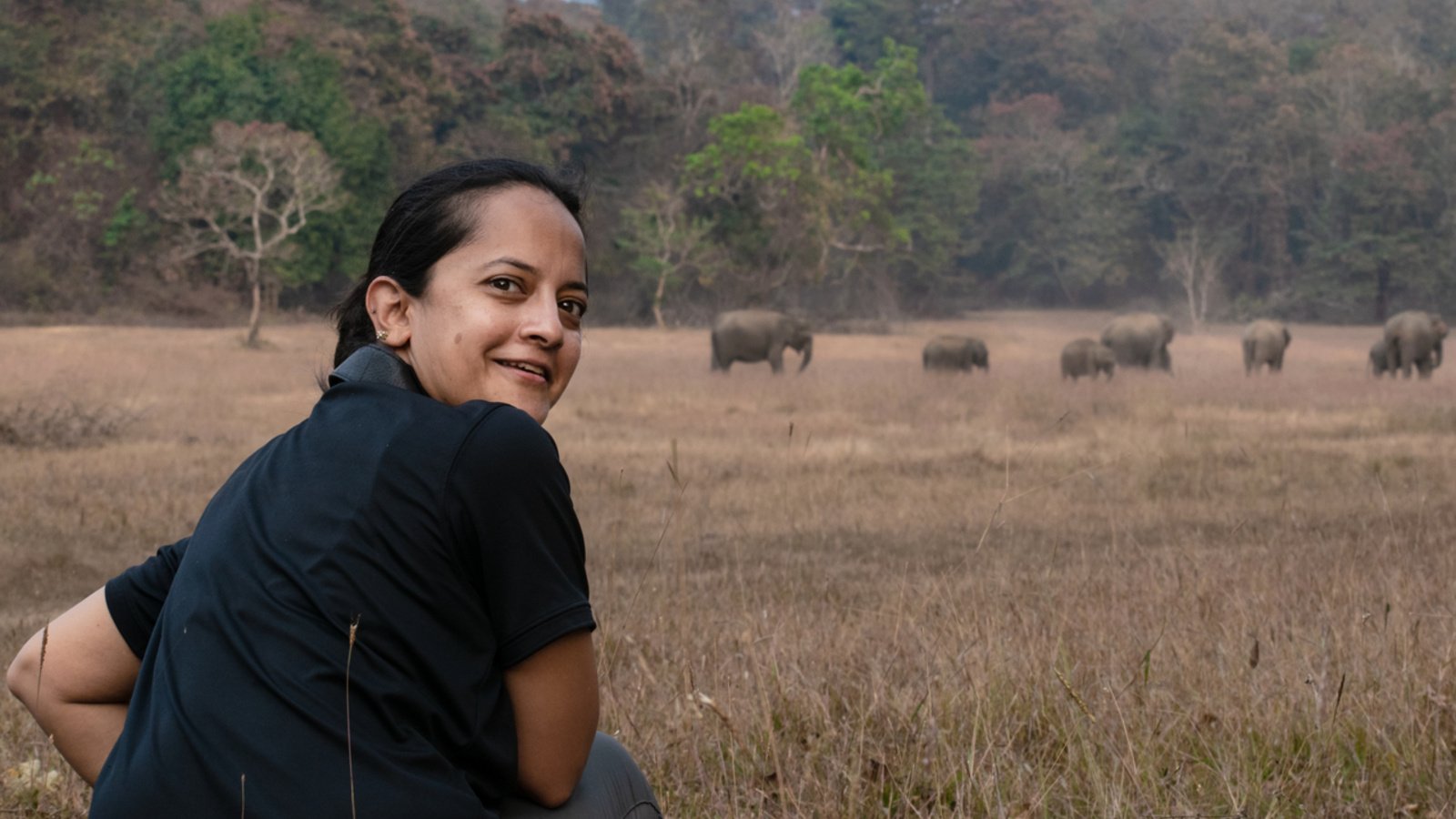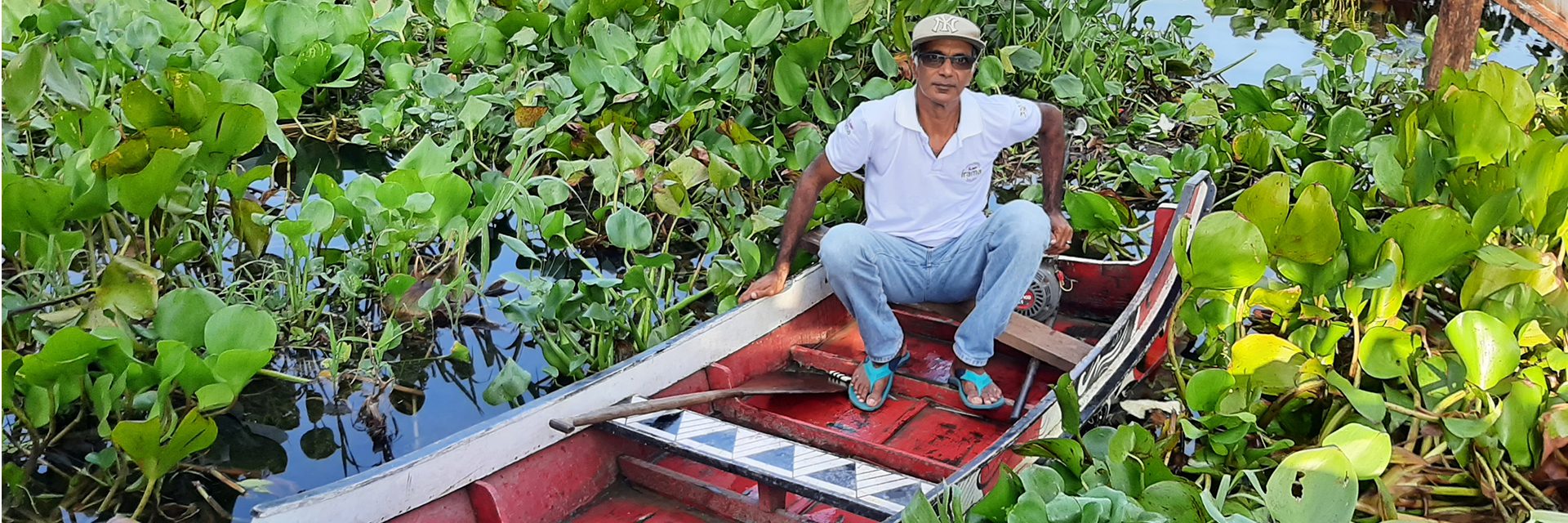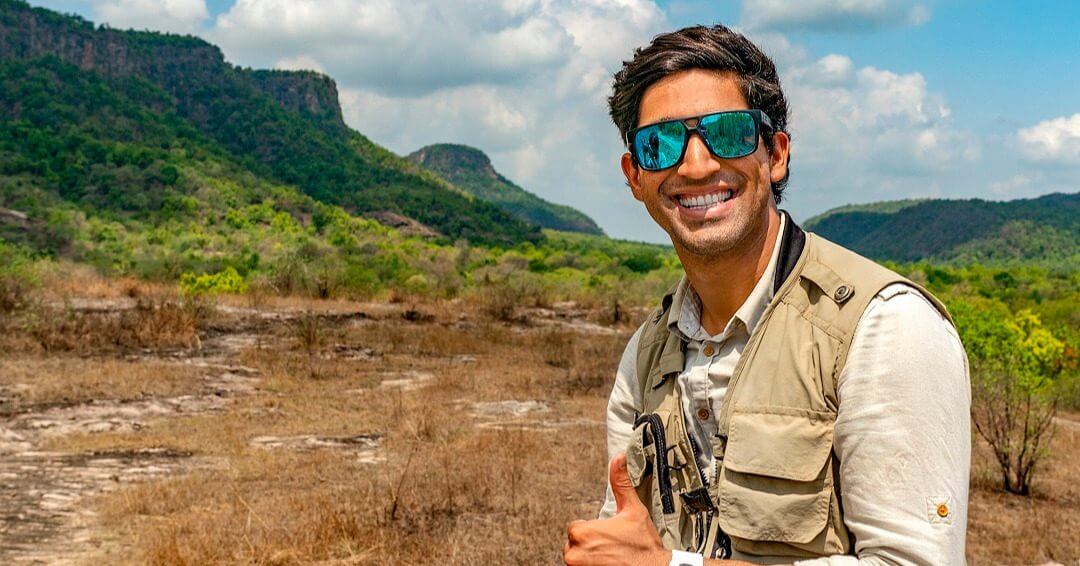(November 10, 2023) Most toddlers watch the big cats in the nearby public zoo, but not Krithi Karanth, who had the privilege of spotting her first tiger as a three-year-old in a jungle with her father. It was a beautiful early evening at Nagarhole National Park in Karnataka when she saw her first big cat, and for years to come, the jungle and national parks became her playground, thanks to her dad, a noted tiger biologist and conservationist and her grandfather, an environmentalist. Growing up, she learnt to track tigers and set camera traps. “In our family, you actually don’t have a choice when it comes to going out into the wild,” said the conservationist who became the first Indian and Asian woman to receive the WILD Innovator Award.
Although she explored the length and breadth of jungles across India, she wasn’t too keen to follow in the footsteps of her father as a conservationist, and instead wanted a PhD like her mother, which she did at Duke University. She had a plan, and she moved to the US to earn a BSc degree at the University of Florida, followed by an M.E.Sc from Yale University. It was here that she got attracted to the field when she spent four months at Bhadra Wildlife Sanctuary for an interdisciplinary project. “I was doing ecological and social science research. I love both. I’ve always been an interdisciplinary person. That trip made me realise I wanted to get into conservation,” she added. Despite getting into an accident and fracturing her leg, she was determined to return to the jungle, finish her interviews and line transacts.

Finding her calling
That trip to Western Ghats helped her find her calling, and another trip in 2009 only cemented her passion for her work. Krithi conducted a research project in India, focusing on the growth and impact of wildlife tourism in 10 parks over six months, while also overseeing a team of 75 volunteers. “The actual engagement, spending time on the ground and interacting with people helped me realise how much I love being in the field in India,” added the conservation biologist. After spending 12 years in the US, she packed up her bags and moved to India at the age of 31, where she became a Ramanujan Fellow, and joined the Centre for Wildlife Studies (CWS) as a research fellow.
It opened up a door of opportunities for Krithi who connected with the wildlife and the people like never before. Her life underwent a significant transformation in 2011 when she was selected as the 10,000th research grantee by the National Geographic Society. This milestone was followed by another achievement in 2012 when she was named an Emerging Explorer by the same organisation. These experiences had impact on her as they enabled her to extend her focus beyond scientific research. She had the opportunity to connect with the wider public, impart her knowledge, and actively involve people in her work. “It put me on a public platform for the first time and helped me connect with people, globally,” she said, adding, “Many scientists don’t like being in the public spotlight and communicating why our work matters. We think if you publish a great paper in a top journal, the world will hear about it. They won’t. You have to connect with people in other ways.”
View this post on Instagram
In these years as a wildlife conservationist, Krithi realised that the relationship between animals and people is not always positive, owing to the acute human-wildlife conflict which includes animals attacking people, destroying their crops, or taking away their livestock. “Kids grow up with a negative, traumatic perspective on wildlife and significant economic hardship. They’re not going to appreciate the fact that India has the highest number of tigers or Asian elephants in the world, that it’s the best place to witness extraordinary animals,” she added.
A program to reduce human-wildlife conflict
This led her to the idea of a conservation program that employs education, artistic expression, narrative, and interactive games to spark inspiration among children residing in proximity to India’s wildlife. She soon founded Wild Shaale, which translates to ‘wild school’, to help fill in the gap in environment learning. The program also delves into the reasons behind conflicts involving wildlife and imparts strategies for responding in such scenarios. This initiative blends various elements, including games, storytelling, presentations, and videos, and features an adaptable curriculum. Krithi particularly enjoys her work with children in India, as she has found them to exhibit a higher level of empathy compared to their counterparts in Europe or the United States. The program has been implemented in 300 schools in seven languages with a revamped curriculum.
View this post on Instagram
In the program, students engage in creative painting, participate in interactive games, and attend informative presentations focused on Indian wildlife. They closely observe animal behaviours and their natural habitats. “The idea is that you start by making learning fun and if you make learning fun, then they’re already and excited about wildlife. I think that’s what’s really made a difference,” said the adjunct associate professor at Duke University.
Krithi, who was awarded the 2020 Eisenhower Fellowship, has also been a World Economic Forum Young Global Leader. Despite all the accolades and achievements, Krithi is hungry to do more. “What I’ve done is not enough. We can do more and can have a greater impact.” In the years to come, she is keen to expand Wild Shaale programmes across India and the world, working with colleagues in Kenya, Sri Lanka, or Brazil. “As long as my mind is working, there is always something I will be able to do.”



